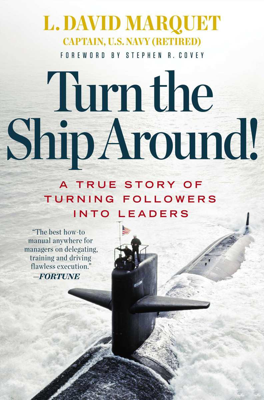Looking Ahead
Strategic Focus and Deployment Preparation
David Marquet reflects on the importance of long-term thinking beyond immediate operational requirements. The USS Santa Fe managed to deploy two weeks earlier than scheduled, prompted by a discussion about enabling crew members to spend more time with their families before deployment. This was achieved by setting a target for the crew and external organizations to have the ship fully prepared for deployment three weeks ahead of the official schedule. Although an early deployment reduced the planned family time, it exemplified effective preparation and alignment with national needs.
Implementation of "Begin with the End in Mind" Mechanism
To cultivate a focus on long-term goals and planning, Marquet introduced a new practice among his leadership team: - One key supervisor per day participated in an hour-long mentoring session, focusing exclusively on long-term and primarily people-related issues. - Marquet and each supervisor developed measurable, long-term goals by writing hypothetical end-of-tour awards and performance evaluations. These activities forced officers to clearly define and plan their professional aspirations and objectives over the next two years.
Achievements and Impact of Long-term Focus
Through this forward-thinking approach: - The crew significantly aligned their actions with long-term goals leading to measurable accomplishments widespread across the submarine. - The officers’ performance evaluations became notably quantifiable ("reduced critiques by 43%", "reduced percent of the crew smoking by 12%"), aiding in clear demonstrations of achievement. This specificity contributed to exceptional promotion rates among the crew.
Organizational Clarity Through Recursive Goal Setting
The process of setting detailed, measurable goals contributed significantly to organizational clarity, as it aligned individual departmental actions with the overarching goals of the USS Santa Fe. These discussions facilitated a deeper mutual understanding of objectives across different levels of the organization.
Questions to Consider for Leadership Development
Marquet concludes the chapter with several questions that encourage leaders to assess and enhance their approach to organizational and personal goal setting: - How far into the future is your organizational optimization targeted? - Are your mentoring efforts designed both to teach and to gather learning? - Can you definitively know if you've achieved your set organizational and personal goals? - Are appropriate measures in place to assess the achievement of these goals? - Have you formulated your organizational goals for the next three to five years? - What changes are needed in your schedule to enhance mutual mentoring within your management team? - What systems do you have to reward staff members who achieve their measurable goals?
This mechanism of beginning with the end in mind advocates for strategic foresight in leadership, promoting long-term planning that transcends immediate operational demands.
